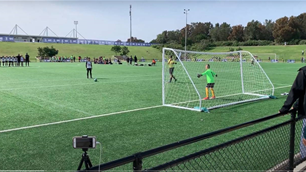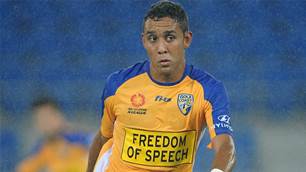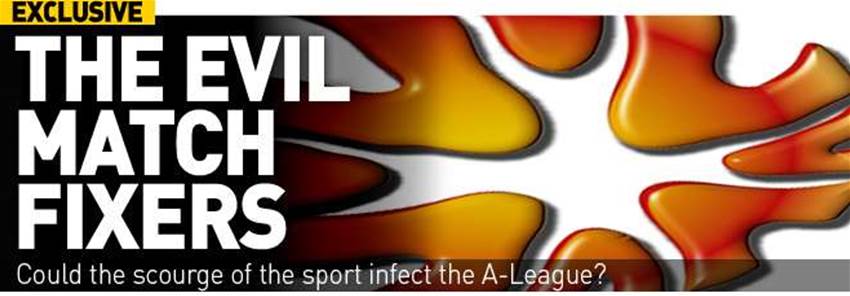VIOLENT gangsters, battered footballers, scared Socceroos and floodlight sabotage – we peer inside the murky world of international match-fixing where the bribery and corruption is more widespread than ever before. Best-selling author Neil Humphreys finds out more...
Addicted to the Fix
Gambling is in the Asian DNA, primarily in East Asia and South-East Asia. There is not so much a football culture in Asia as there is a football gambling culture and an overriding obsession that everything is “kelong” (the local vernacular for fixed, a Malay term, it means fishing traps, if you do not fix the traps properly, fish get through). Every Asian league is “kelong”, the A-League is “kelong”, La Liga, Serie A, the English Premier League, the Champions League, the World Cup; they’re all “kelong”. Of course, they’re not. But if a culture breeds on the principle that every sporting contest can be, or is, fixed, then notions of partisanship, favourite teams and fair play are often usurped.
There are only two sides in this football culture – winning and losing – and gambling-obsessed Asians want every “edge”, every piece of inside information, real or otherwise, to ensure they end up on the right side. From Singapore to Shanghai, if a football bet is lost, the reaction is always the same. The match was “kelong”. There is anger not because the match was perceived to be fixed, but because the bet was not placed on the supposedly fixed side. That’s the cultural distinction to make.
That’s why fellow “sports” journalists in Singapore would dash to the nearest Singapore Pools outlet before a game once they’d received word that the fix was in. I watched them place the bets. I watched them make a tidy sum as the goals reigned in the last 10 minutes of the game (the more goals scored, the better the odds, the easier to fix, a defender and a goalkeeper will do. Nine goals or more was always the jackpot; 9+ paid up to 50-1). I watched them wave their betting slip in celebration as games suddenly turned into 5-4 farces or 6-3 capitulations. And then I watched them write match reports with a straight face about the weary defence inevitably imploding in the dying moments of the game. That’s why Asian leagues are more susceptible to match-fixing. That’s why illegal Asian betting syndicates send representatives with suitcases stuffed with cash (US$100,000 usually does the trick) to overseas leagues from Bosnia to Bahrain. As Subhas Anandan, Singapore’s most high prolife criminal lawyer who has defended several match fixers over the years, once told me: “At any given time, there are always a couple of match fixers in the air, flying to fix a game somewhere.”
Meet the Match Fixer
Men like the inimitable Wilson Raj Perumal. The man is a Google search all by himself. Like the methods of match fixing, he has evolved and diversified with breathtaking audacity. At time of writing, the Singaporean was on the run for allegedly injuring a police officer, but recent reports suggested he'd been arrested in Finland. That's how far his links to global match-fixing allegedly reach.
In 1995, when South-East Asia finally went after the match-fixing syndicates in a series of operations that Ollerenshaw alluded to, Wilson Raj was jailed in Singapore for a year for giving $3000 to a football team captain to lose a match in September 1994. Turned out he was just warming up.
In 1999, he was found guilty of bribing a football referee. A year later, he was linked to the Nicholson assault. But these were old school match-fixing methods. The game was changing rapidly. Rupert Murdoch’s TV revenues were transforming the beautiful game into a global, billion-dollar industry. Online gambling websites were doing the same for illegal bookies. The 2002 World Cup generated around $500 million in betting revenue for the Government-owned Singapore Pools. That’s a one-month tournament in a country of only four million. And that’s the legal betting revenue. Conservative estimates suggest only 20-30 per cent of all bets placed in a country like Singapore are legal. The other 70-80 per cent go to the illegal bookies, who give better odds and a longer line of credit. You do the maths. The days of bribing referees for a domestic fixture were ending. Match-fixing was going global and getting creative.
On September 2010, a largely meaningless friendly between host Bahrain and Togo was played. Togo lost 3-0. There were rumours that the game was fixed. Out of nowhere, Singapore’s “kelong king”, Wilson Raj popped up on the radar. His alleged involvement is nothing short of extraordinary - the Togo team was made up entirely of imposters. Wilson Raj, posing as an accredited agent and match organiser, allegedly arranged for a “fake” Togo team to take on Bahrain, making the not unreasonable assumption that no-one in Bahrain could tell a genuine Togo player from a fake one. Why bother with the outdated, unreliable methods of bribing the goalkeeper or the ref when you can fix an entire squad? The elaborate scam almost worked – except a legitimate official from the Togolese Football Federation happened to be at the match.
The Bahrain Football Association launched an immediate investigation and former Togo coach Bana Tchanile was handed a three-year ban for taking the team of imposters to Bahrain. Any journalist or fan who has laboured through the tedious process of getting a ticket, pass or visa to an international football fixture would immediately recognise that Tchanile could not be the only culprit. Passport details, travel documents and visa applications all had to be exchanged between Togo and Bahrain. “Incentives” would have been needed within the football associations to expedite the process.
According to an industrious investigative reporter in Singapore, who has followed the case closely and spoke on condition of anonymity, Wilson Raj placed heavy bets with football betting websites, with each one making between $500,000 and $700,000.
Match-fixing is an expensive proposition. There are a lot of overheads. According to The New Paper in Singapore, Wilson Raj is backed by a wealthy Chinese Singaporean and supported by several lieutenants, including a Malaysian and an Indian Singaporean man. Their global match-fixing targets? Any national association where wages are low or paid irregularly. Wilson Raj started with smaller nations, according to The New Paper, because he was broke after being released from jail in 2006. In 2008, he was allegedly involved with fixing a match which involved the Sierra Leone Under-20 team. What is certain is that Malaysia beat Sierra Leone 4-0 in Malaysia in the Merdeka Tournament in October 2008. What is less certain is who actually organised the match. A source at the Football Association of Malaysia told The New Paper that Wilson Raj’s name was not registered with the company that organised the match, but he appeared to be calling the shots.
In July 2009, he was back in Malaysia with the Zimbabwe national team for two friendlies. But the Zimbabwe side appeared to be as genuine as the Togo side that popped up in Bahrain a year later. After “Zimbabwe” lost 4-0 and 1-0 to Malaysia, Malaysian newspaper The Malay Mail claimed the players were not the real deal. It gets better. Several media reports later said the players were in fact from a Zimbabwe premier league team called Monomotapa United.
After the scandal, Said Datuk Azzudin Ahmad, the FAM general secretary, said: “When we are told that this is their national team, we take their word for it. We do not question it because that would be questioning their integrity.” But it’s interesting to note that no African side has been invited to play in Malaysia this year. And FAM have now joined the Zimbabwe Football Association (Zifa), the Togo Football Federation and, of course, the Singapore Police Force, all wanting to have a word with the missing Wilson Raj.
Finally, in October 2010, FIFA intervened, calling on Zifa to take urgent action after an internal probe by Zifa concluded that national team players were paid to lose matches by an Asian betting syndicate in December 2009. Zimbabwe lost 3-0 to Thailand and 6-0 to Syria. Incidentally, at exactly the same time, two Singaporean “businessmen” were arrested in Syria on allegations of match-fixing. They were imprisoned for a short period and then released, following rumours of torture and bribery. According to sources, the “businessmen” are back in Singapore and both “active” again.
Continued on next page...
Related Articles

Fresh talent flock to ambitious A-League outfit's pro pathway

Why A-League 20/21 is crucial for Olyroos’ medal hopes













